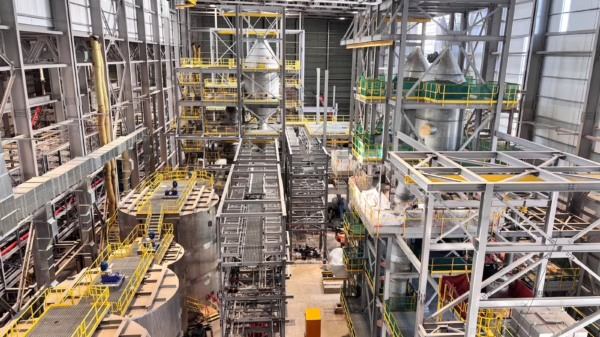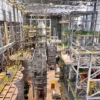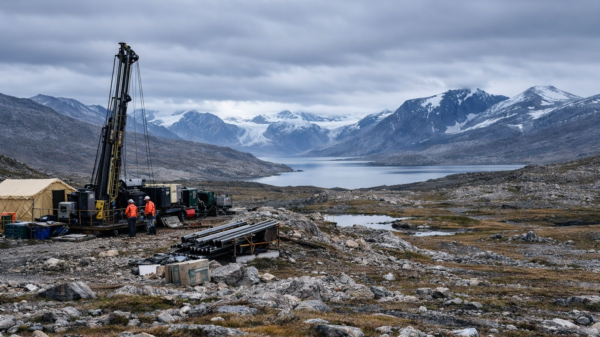Canada is positioning itself as a supplier of choice for Europe as the continent works to strengthen energy security and defence.
Finance Minister François-Philippe Champagne promoted this idea following meetings in Denmark with European Union finance ministers. He argued on Saturday that Canadian exports of critical minerals and energy could boost European resilience while also broadening Canada’s trade base.
Champagne described the world economic order as undergoing a rapid and large-scale transformation not seen in decades. He emphasized that European partners recognize Canada’s efforts to become more competitive, more trusted as a supplier of resources, and more open to collaboration.
Defence and security dominated the discussions in Copenhagen. Champagne pointed to Canada’s critical mineral reserves, energy resources and shipbuilding expertise as key strengths. In addition, he stressed that liquefied natural gas and nuclear technology could help Europe achieve greater energy independence.
“We are redesigning the world economic order at a speed and at a scale that I would say has not been seen in a generation,” he told reporters on a call from Copenhagen.
“They have taken notice that we’re putting our house in order so that we can be more competitive, that we can be a trusted supplier of natural resources, that we are willing to partner.”
Critical minerals were a central theme in the talks. Champagne highlighted their importance for the aerospace sector, auto manufacturing and defence industries. He maintained that Canada’s deposits provide the country with a strategic role in supplying resources essential to the 21st-century economy.
Read more: NevGold delivers major growth at Idaho gold project
Read more: NevGold Corp’s limousine Butte drill program targets first Gold-Antimony resource estimate
Canada must diversify away from the United States
The outreach to Europe comes ahead of difficult negotiations to review the Canada-U.S.-Mexico Agreement next year.
Earlier this week, Canada and Mexico signed a bilateral pact to deepen economic and security cooperation. Prime Minister Mark Carney noted that this accord would complement the trilateral trade framework.
Champagne acknowledged that the United States remains a crucial partner.
However, he also argued that Canada must diversify its markets. He recently expressed disappointment that Washington has turned away from Canada, forcing Ottawa to rethink its path for long-term economic growth.
Furthermore, Champagne linked current opportunities to Canada’s historic role during the Second World War. He recalled how Canadian industry shifted quickly to supply Allied forces and sustain growth for decades.
He suggested that today’s shifting geopolitical order presents a similar calling and could shape prosperity for the next half-century.
“We were able, back then, to shift the Canadian economy for success for 50, 80 years. For me, this is the same calling we have today,” Champagne said.
Additionally, NATO’s rising commitments are pushing European states to increase defence spending. Champagne contended that Canadian firms could fill gaps in supply chains and meet growing demand. He stated that acting now would strengthen resilience while anchoring long-term benefits.
The Denmark meetings included representatives from the United Kingdom, Norway, Ukraine and EU member states. Champagne also held talks with Ukrainian officials and joined a roundtable on Arctic security. He underscored that Canada has the resources, expertise and partnerships to become a reliable supplier for European partners.
Read more: GoldMining chooses to retain its NevGold shares for next 18 months
Read more: Antimony recovery results from NevGold’s Limo Butte project exceed expectations
Downstream effects benefit Canadian critical minerals producers
Canada’s push to become a European supplier of choice could reshape prospects for critical minerals producers.
Producers should expect stronger demand and higher prices for battery metals and strategic inputs. In addition, buyers will pay a premium for supply-chain security. Antimony stands out because industry and defence both rely on it for flame retardants, batteries and munitions.
Furthermore, China currently dominates refining and processing, creating a chokepoint for global buyers. Consequently, Western buyers will seek alternative sources and downstream capacity.
Junior miners with advanced projects could win the most.
Defense Metals (CVE: DEFN) (OTCMKTS: DFMTF), which operates the Wicheeda rare-earth project in British Columbia, already draws government attention and funding to build local processing. NevGold Corp (CVE: NAU) (OTCMKTS: NAUFF) (FRA: 5E50) has identified high-grade antimony potential at its Limousine Butte project in Nevada and now targets resource expansion.
In addition, firms that can integrate mining with local refining will capture more value and faster offtake.
However, moving away from U.S. markets complicates the strategy. U.S. tariffs and trade frictions pushed some buyers into new alliances, and Europe may offer a near-term alternative.
Meanwhile, building refining capacity outside China will take years and significant capital. Conversely, governments now prioritise critical-mineral infrastructure funding, which lowers investor risk. Subsequently, producers can access grants, pre-pay offtake deals and defence contracts.
.
NevGold Corp is a sponsor of Mugglehead news coverage
.














